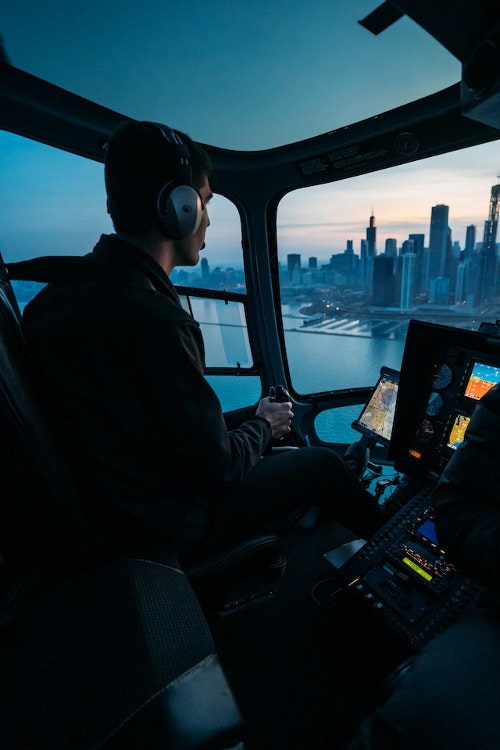Many people’s ideal job would be to fly airplanes. Yet, more than proficiency in flight and aviation is needed. Pilots must also have access to the appropriate equipment to guarantee a safe and efficient flight. The tools a pilot needs to succeed are the subject of this article.
Necessary Equipment for a Pilot
Headsets
A pilot’s headset is one of their most crucial gear. They facilitate interaction between the pilot, ground control, and passengers. In addition, they lessen the volume of engine noise, which may protect pilots’ ears from permanent injury.
Navigation equipment
While flying across a new territory or in hazardous weather, pilots rely heavily on their navigation equipment: the Global Positioning System, the Very High-Frequency Array, and the Automatic Dependent RF. The pilot may use the information gleaned from these devices to gauge their position and course better and learn more about nearby aircraft.
Flight instruments
The altitude, velocity, and direction of an aircraft are all vital information that pilots rely on from their flight instruments. Examples include the altimeter, airspeed indicator, 28v dc power supply for aircraft, and attitude indicator. To guarantee a safe and effective flight, pilots need to be able to read and understand these instruments.
Emergency equipment
Pilots need specific items on board in case of an emergency that might save their lives and the lives of their passengers. First aid kits, fire extinguishers, and signaling devices fall under this category. In an emergency, pilots must also be familiar with the proper usage of this gear.
Weather equipment
The weather may have a major effect on a flight, so pilots must be ready for everything. Radar, lightning detectors, and storm scopes are all examples of weather equipment, and these devices may aid pilots in recognizing potentially hazardous weather and making alternate flight plans.
Benefits of Becoming a Pilot
Career Opportunities
The flexibility of a pilot’s schedule is one of the profession’s greatest advantages. Pilots may find employment in the civilian aviation industry, the private aviation sector, or the armed forces. Moreover, pilots can specialize in either passenger planes or other types of aircraft, such as helicopters.
Travel Opportunities
Pilots often get to experience new places. They visit new places, learn about other cultures, and interact with new people. This is a rare benefit that is not offered by many other careers.
Good Salary and Benefits
Pilots often get a competitive income and generous perks, such as medical insurance, retirement savings schemes, and free flights. In addition, pilots with years of experience may command better compensation and move further in their careers.
Personal Growth
Becoming a pilot is a challenging and time-consuming endeavor. The ability to effectively communicate and solve problems are two of the most important talents for a pilot. Pilots’ personal and professional development may benefit from acquiring these abilities.
Types of Pilots
Private Pilots
A private pilot is an individual who has their pilot’s license for recreational purposes alone. For fun or to go to neighboring places, they may get on a little plane and go.
Commercial Pilots
Commercial pilots hold the certification required to fly big commercial aircraft. They are needed to have an Airline Transport Pilot (ATP) certificate, which is the greatest level of certification that a pilot can earn. This is the highest degree of certification that a pilot can acquire. They can fly for many commercial operators, including airlines, freight firms, etc.
Military Pilots
Pilots in the military are the people in charge of controlling military aircraft, such as fighter jets and transport planes to contribute to the nation’s defense and security. They go through specialized training to serve in the armed forces.
Helicopter Pilots
Pilots of helicopters undergo extensive training to learn how to fly their craft for various applications, including search and rescue, transportation, and aerial photography.
Airline Transport Pilots (ATPs)
ATPs are airline transport pilots that have completed extensive training and are qualified to fly big commercial aircraft. They are needed to have a significant amount of flying experience and training and they must fulfill stringent psychological and medical criteria.
Conclusion
Being a pilot comes with significant responsibility and calls for a high degree of experience and training. But, access to the appropriate equipment is also necessary to guarantee a safe and successful flight. The equipment that pilots must operate must be well understood, and they know how to operate it correctly in an emergency. Pilots may guarantee they are prepared for any circumstance while they are in the air by acquiring the appropriate training and the necessary equipment.













